NordAN Open Day in Stockholm explores the growing challenges of alcohol availability
NordAN Open Day in Stockholm brought together member organizations and partners at the NDPHS Secretariat, where we discussed the growing challenges of alcohol availability in the Nordic region. The event addressed Sweden’s alcohol monopoly, Finland’s struggles with EU pressure to allow online sales, and Norway’s ongoing debate on farm sales and grocery store alcohol availability. Presentations also covered developments in Estonia, Latvia, and Lithuania, highlighting concerns over home delivery and online alcohol sales. The event emphasized the need for continued Nordic cooperation in alcohol policy to counter increasing industry pressure and political shifts.
The Swedish monopoly under pressure
One of the key topics was Sweden’s long-standing alcohol monopoly, which has been a proven public health measure to reduce alcohol-related harm. Emil Juslin from IOGT-NTO highlighted that alcohol-related harm costs Swedish society an estimated €10 billion annually, with over 300,000 children affected by alcohol misuse in their homes.
However, the monopoly is facing multiple challenges:
- Farm sales: Allowing direct sales from producers could undermine Systembolaget’s monopoly and introduce discrimination against foreign producers.
- Distance sales: A 2023 court ruling confirmed that such sales are legal in Sweden, but it would be legally acceptable to ban them.
- State inquiry: A government-led inquiry is evaluating the overall effectiveness of Swedish alcohol policy, reflecting shifting political priorities.
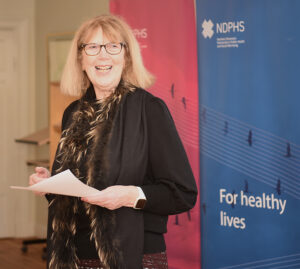
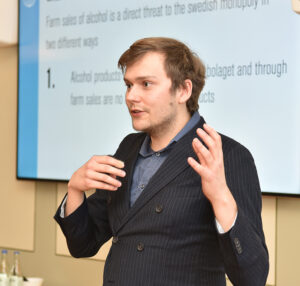
Finland’s alcohol policy at a crossroads
Anne Babb from the International Blue Cross provided an update on Finland’s evolving alcohol policies. Online alcohol sales and home delivery remain debated issues, with a European Commission intervention pushing Finland further to open its market. This move threatens the country’s alcohol monopoly, as the European Commission requires any framework for online alcohol sales to ensure equal opportunities for domestic and foreign retailers. The EC issued a detailed opinion that forced Finland to delay implementation (initially planned for January 1, 2025) and respond by March 19, 2025. Instead of protecting the monopoly, the minister has stated that necessary amendments will be made to enable approval. Despite these pressures, Babb emphasized that there is still an opportunity to protect Finland’s restrictive alcohol policies.
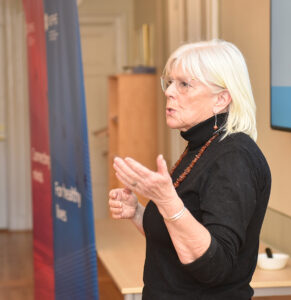
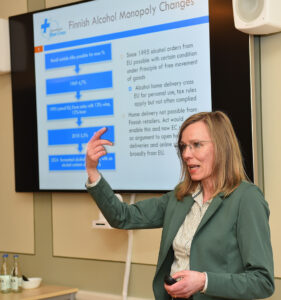
Norway’s debate on farm sales and grocery store alcohol sales
Mariann Skar, NordAN’s president, discussed how Norway’s political landscape is shifting, with increasing pressure to “modernize” alcohol policies.
- The Norwegian parliament has requested a review of farm sales regulations, looking at Sweden’s model, though past reviews have flagged legal and public health concerns.
- The threat to Vinmonopolet, Norway’s alcohol monopoly, remains, as some politicians advocate for allowing grocery stores to sell alcohol up to 8% ABV—a policy Finland has already implemented.
Home delivery and online alcohol sales: Estonia, Latvia, and Lithuania
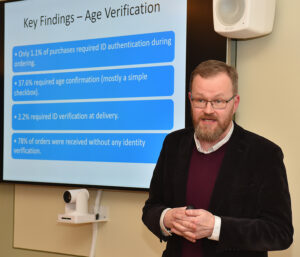 Lauri Beekmann presented findings on home delivery and online alcohol sales in Estonia and Latvia. Estonia has seen regulatory gaps in age verification and delivery methods, raising public health concerns (only 1.1% of purchases required ID authentication during ordering). Meanwhile, Latvia, which legalized online alcohol sales in 2020, has introduced a mandatory six-hour delivery delay to curb impulsive purchases. Lithuania has also made policy adjustments, allowing limited alcohol information on online food delivery platforms while still maintaining an overall advertising ban.
Lauri Beekmann presented findings on home delivery and online alcohol sales in Estonia and Latvia. Estonia has seen regulatory gaps in age verification and delivery methods, raising public health concerns (only 1.1% of purchases required ID authentication during ordering). Meanwhile, Latvia, which legalized online alcohol sales in 2020, has introduced a mandatory six-hour delivery delay to curb impulsive purchases. Lithuania has also made policy adjustments, allowing limited alcohol information on online food delivery platforms while still maintaining an overall advertising ban.
The future of Nordic cooperation on alcohol policy
The event concluded with a discussion on the state of Nordic cooperation in alcohol policy, moderated by Lauri Beekmann, executive director of NordAN. The panel included Ülla-Karin Nurm, Director of the NDPHS Secretariat, Maria Renström, Secretary in the Swedish Government Committee, Gabriel Romanus, honorary president of NordAN, a former Minister of Social Affairs, Riksdag member, Nordic Council President, and CEO of Systembolaget, and Mariann Skar, president of the NordAN network. The discussion referenced the Helsinki Treaty’s Article 16, which mandates Nordic countries to collaborate on public health and temperance work. However, in recent years, the region has seen fragmentation in alcohol policy approaches, with different responses to distance sales, farm sales, and home delivery.
Despite these challenges, speakers emphasized that Nordic cooperation remains essential in preventing alcohol-related harm. As political landscapes shift and industry pressures grow, maintaining a strong, evidence-based alcohol policy across the region is more important than ever.
Presentations from the event can be found on NordAN website here.